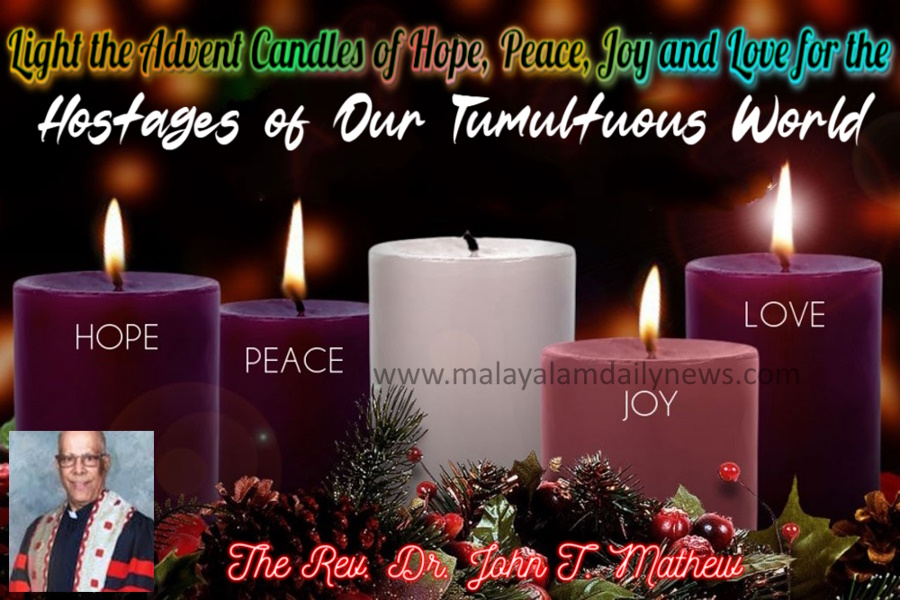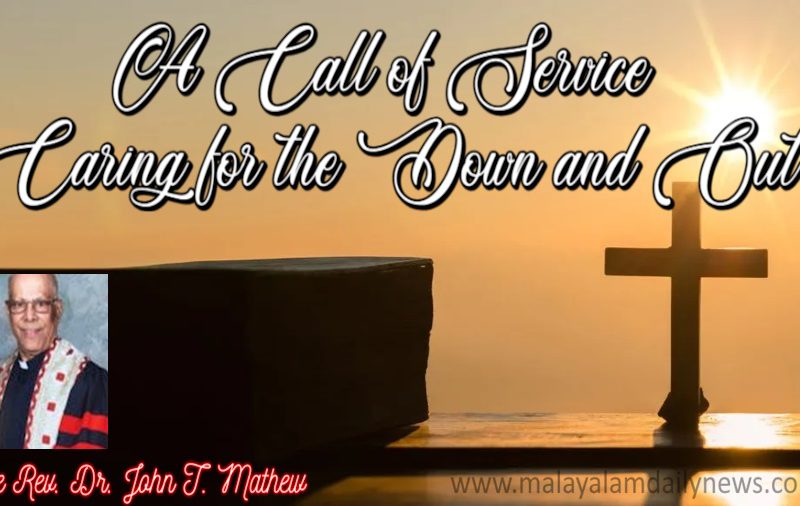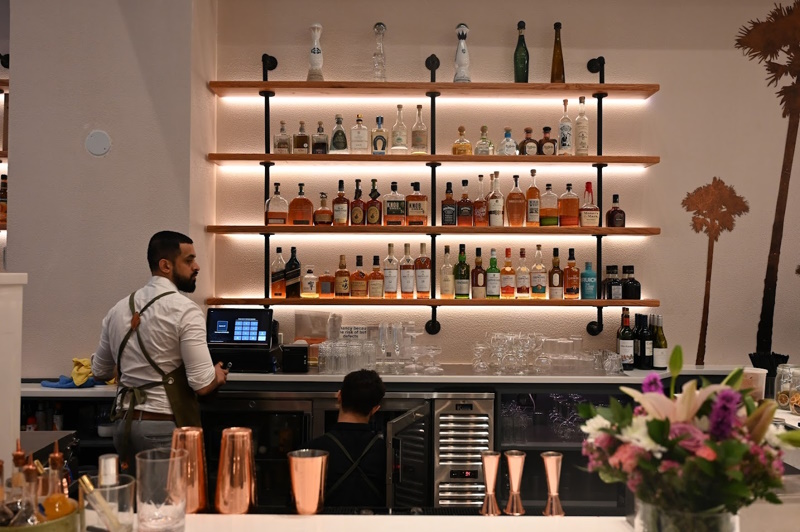 The highly charged US election spectacle in the mediawas hilarious to watch. Our neighbors’ interminable partisan anarchyis still unwrapping very much like a Christmas present. On the other hand, as anuninvolvedobserver comfortably couched in the bleachersover the longest and least guarded international border in the world, all one could do might be to hope for scores of my classmates, friends and family members to do the right thing in order to preserve the greatest democracy in history and the most prosperous nation on the planet.
The highly charged US election spectacle in the mediawas hilarious to watch. Our neighbors’ interminable partisan anarchyis still unwrapping very much like a Christmas present. On the other hand, as anuninvolvedobserver comfortably couched in the bleachersover the longest and least guarded international border in the world, all one could do might be to hope for scores of my classmates, friends and family members to do the right thing in order to preserve the greatest democracy in history and the most prosperous nation on the planet.
Since then, Hollywood actress Eva Longoria divulged to French magazine Marie Claire that her family splits time between Mexico and Spain due to “changing vibe” in the US following the pandemic, homelessness, high taxation and the re-election of an unhinged businessman. The privileged artist added, “Most Americans aren’t so lucky. They’re going to be stuck in this dystopian country.”
Five decades ago, I had queasychagrin about being too near our neighbours to the south. When the late Prime Minister Pierre Trudeau met President Richard Dixon in 1969, he attempted to define relations between Canada and the U.S.: “Living next to you is in some ways like sleeping with an elephant. No matter how friendly and even-tempered is the beast, if I can call it that, one is affected by every twitch and grunt”.
That’s how I size up the church these days – no more wrestling in the arena or standing behind the pulpit but either left in the back pews or watching on-line how the community of faith participates in theexasperating times. Whether the widening war zones or pesky election drama people are experiencing formidable, inflamed, fast and loose emotions that appear to be off the rails.
In spite of my docile despair and forlorn hope, a note from Dean Marla F. Frederick reminded me of a “great opportunity for hope and healing across our community”. Ineffably, ‘hope’ is a preordained theme for this holiday season in our shaky world and the New Year!
The tradition lighting the Advent candles of hope, peace, joy and love prior to Christmas day boostsup those who gather to celebrate the birth of Jesus.American poet Emily Dickinson’s lyric poem of praise, underscoring our capacity for hope, ties inhope to a feathered bird that perches in my soul.
“Hope” is the thing with feathers –
That perches in the soul –
And sings the tune without the words –
And never stops – at all –“
Prophet Zechariah, the driving force who offered the Hebrew people a shot in the arm to rebuild the temple, reminds us that the covenant was their ground of hope; therefore, we too are prisoners or hostages of hope in our raging age.
In our unbridled world where no one knows what goes off next, millions of people from Gaza to Kiev feel like undesirable orphans with no one to care and fend for them. Those who are entrusted with the Good News of Jesus’s birth must step up to serve as beacons of hope.
While despair may shorten life, optimism lengthens life. In 2022 when the whole world was recovering from COVID19, Harvard T.H. Chan School Public Health reported ‘Higher levels of optimism were associated with longer lifespans and living beyond age 90 in women across racial and ethnic groups.’
Everyone has a success story to tell. Those who are successful, also have stories of letdown, dashed hope and implosion. The opposite of success is an absence of fire in the belly – quitting like an insecure dog walking away with its tail down!
There are days when we feel like the two dejected disciples of Jesus traditionally believed as Cleopas, younger brother of Joseph, and his wife Mary on the road to Emmaus, a village about seven miles west of Jerusalem. Proverbs 12:25 informs us that despair weighs us down but uplifting words cheer us up.
It is not hard to recapture the days when we were disillusioned how we fled the vile revulsion of the big city and escaped to the serenity of small familiar places to reboot the hope once we had. Disappointments debilitate our dreams. Defeats drive us to foxholes. Depressions dilute our zest for life. Diseases dry up our dedication to hang on to life.
Once when I ran out of spiritual steam, I chose to leave the backpedaling church folk and headed to a deserted hill country and spent a short time with my younger sister and family and eventually convinced them to move on as well.
Many of my ministerial colleagues fail to instill a passion for kindness, humour and ability to push others to use imagination and think deeply. Thankfully, my former parishioners in Canada, Scotland and New Zealand as well as former students bring me the greatest professional joy.
Those who read Theology in the early 1970s might construe as if Jürgen Moltmanndreamt up theology of hope as he stated ‘Christian hope does not promise successful days to the rich and the strong, but resurrection and life to those who must exist in the shadows of death. Success is no name of God.’
My New Testament professor wanted me to review ‘Theology of Hope’; but I found Harvey Cox’s ‘Secular City’ published a year later much more engaging. As luck would have it, I was honoured to discuss with the author how the city can be a breathing space for all communities of faiths as the Holy One is present in both the secular and sacred orbits. Once when I raised this European brain-teaser of an alleged clash, the late Diogenes Allen candidly concurred that the secular and the sacred are not poles apart but similar to day and night where one leads to the other.
Isn’t it intriguing that unlike Ernst Bloch, Jesus never offered us a principle of hope. Maybe that’s why the second Assembly of the World Council of Churches gathered in Evanston IL highlighted ‘Christ (preferably Jesus!) – the Hope of the World’. When the next assembly met outside the former Christendom in New Delhi, the organizers remembered to add ‘Jesus’ and we had ‘Jesus Christ – the Light of the World’. Now, I am holding my breath to see the imported title ‘Christ’ replaced by Jesus’ original name ‘Messiah’. The Church has always been glacially slow to welcome changes.
A hick from a hidden hamlet in the Sabarimala/Nilackal church locale, morphed into a nerd due to an enervatinginfirmityin preteen years, I was intensely involved in the life and work of the local church community. For sure, my classmates were crazy sycophants of political disruptions butI spent more time in the library hunting for scholarship to travel and study abroad. And it amazingly worked outa few times – similar sparks ofhope made me a Pollyanna. So, the covenant of hope is the cradle of life that anchors in rock-solid faith. It bonds us with and summons us to a promising hereafter that unravels each day joyfully radiant.
When the characters in our daily living drama play out around the globe day after day offer us abnormal modules such as the upshots of conspiracies, hurtful clouts of manoeuvring, appalling tweets during the ungodly wee hours of night-time and perils of callous desires we crave for a focus of hope.Not an abstract construct but a porous sense of being, becoming and belonging.
Didn’t Jesus arrange for an affirmation of hope when he declared: “Everything is possible for one who believes”? Therefore, our hope is founded on our faith, a belief that everything is possible.
Does hope get better or worse with ageing? Almost everything that is enjoyable is no more enjoyable. Same with food, friendships, fellowship and travel. For sure, it might be gruelling to be healthier. It is possible to be less burdened with the chores, therefore more content and grateful. During my very last meeting with my mother who nudged me to become what I am today, I posed an up-front query, ‘Do you have any qualms about dying?’. She paraphrased the final words of Polycarp, the bishop of Smyrna. “‘For eighty long years, God guided and blessed us; I look forward to being closer to my God”. Absolutely gobsmacked, we hugged and whispered our ‘goodbyes’. My father witnessed those visceral moments frozen like snowman in the gush and gust of fleeting emotions. Their hope kept them in good spirit and health for four more years.
Most folks of their vintage in the community of faith had known and felt secure in the ancient words of Peter regarding God’s great mercy of a new birth into a living hope through the resurrection of Jesus from the dead.
Half a century ago, when I showed up as a crossover theological apprentice in Canada, at the 50th anniversary of The United Church of Canada we sang with gusto, “Sons of God (hear His Holy Word)”. Since then, having sorely fessed up by excluding daughters of God, the Communion hymn disappeared from the hymnary. When I was ecumenical guest minister at the St. Machar’s Cathedral, Aberdeen, Scotland the older worshippers didn’t enjoy my selection of hymns for the worship services. They asked for ‘Onward Christian Soldiers’, the heartless militaristic colonial hymn. I love the music. That’s it. The congregation wasn’t happy when I announced, ‘if we sing this colonial hymn, imagine the worshippers at the Mosque down the street might be singing, “Onward Muslim Jihadists marching as to war”. Thankfully, the Kirk expunged it in 2010 which Canadian churches discarded decades ago!
Now, not long ago, the Church of England very quietly dropped the word ‘church’ in order to be more ‘relevant’ and ‘modern’. With the approval of the monarch and blessings of Archbishop Justin Welby, they church preferred ‘community’. A smidgen of hope helps! Every life, community of faith, creativity or endeavor conceived, crafted and commercialized, needs to be grounded in hope as it has its potential as well as imagined cliffhangers.
A young woman shared with me her hope from an abyss of hopelessness: ‘I got almost asphyxiated in a relationship that lasted over a dozen years. In hindsight, I was very foolish to get involved with a loser misogynist who made my young life hell. Finally, I divorced him…..now that I am back to square one, I need some grit, grace and energy to pick up the pieces and move on with a renewed theology that is based on esperanza, or hope’.
1 Chronicles 29:15 informs us that David confessed: ‘We are foreigners and strangers in your sight, as were all our ancestors. Our days on earth are like a shadow, without hope.’ In ancient cultures, those who had power and prosperity claimed a god-send privileged space in the social structure.
Theologically untrained peddlersin echo chambers attempt to establish a dogmatic stance that Jesus came to save solely those who believed in him. The church has been saddled with such issues for centuries. It helps us to transcend our Sunday School theology that almost convinced us that salvation is preferential. Afterall, God in Jesus loved the world and offers eternal life.
Like all disciplines, theology needs to evolve to care for everyone. When one of my old classmates learned that I was teaching World Religions, he insisted that I should convince my students that there is no salvation outside the church. Thecovenantor disciple of Knox and Calvin appeareddisillusionedthat the university had an unambiguous mandate to instruct – not to induce! Cyprian of Carthage’s blinkered dictum ‘extra Ecclesiam nulla salus (outside the Church, no salvation) is inappropriate today.
Hope is not an entitlement of the believers in a community of faith. All humans pushed to the margins need hope as much or far more than those who squirm in the pew week after week.Archbishop William Temple, a crass custodian of colonial cruelty as well as a minion of the empire, during World War II tipped off his missionaries in India never to read the unshackling song of praise Mary (Magnificat)sang in public.
‘God has shown strength with God’s arm…..
God has filled the hungry with good things,
and sent the rich away empty’.
Temple was a control freak who wanted to hide the Good News of Jesus from alleged gentile folks in the distant places. The so-called evangelical folks assume they get to dictate how others live, believe, worship, eat, drink, clothe etc.
Ronald Heifetz, one of the world’s foremost authorities on the practice and teaching of leadership,reminds us that leadership pulleys in some managing but managing does not involve leading. Too many managers are thrust with leadership position which sucks oxygen from our institutions including the church.
The followers of Jesus within the community of faith as well as those who are not on the church roll, who live the Good News are the hope for today and tomorrow. A church that enjoys being the lap dog of an empire, a hegemony or an ideology is unworthy of promoting prophetic hope Jesus instituted outside the belly of an evil empire.
We should never refrain from our theological imperative to rule out the need of imperial missions originated in Europe that served the empires more than God’s intervention revealed in Jesus. The great commission Jesus began goes on with or without emperors, tyrants or dictators whose fundamental motive is not to empower the poor but to pillage and plunder.
It is never too late to question the so-called propagation of the Good News tossed on the materially distraught nations around the globe. By and large, the ‘foreign’ missions were a reprehensible embarrassment of the Good News. The Holy One never ever anoints an affluent nation or individual with a missionary vision albeit they may own the nuts and bolts amassed by unethical means.
Did Jesus come to offer hope to the whole world or just to help those of ‘us’? The Holy Communion is open or accessible only to those who are kept inside the paddock as if we are the defenders of the Lord’s Table!
Is there a hope for the world?With Job, and all who suffer unjustly, we are forced to cry out to an apparent silent Heaven, ‘Where is there any hope for me?
Who sees any? (Job. 17:15).
During the Advent season we sang, Brian Wren’s carol:
‘Hope is a starthat shines in the night,
leading us on till the morning is bright…..
and none shall be afraid’.
Themandate of the season of Advent, Christmas and Epiphany is to make our hope far greater than our despair and our actions more down to earth than our bottled-up emotions. The promising hope in Jesus is in the cards to move on from this diminishing darkness to a brighter dawn. Living with hope is the same as what Ray Bradbury cautions us ‘Living at risk is jumping off the cliff and building your wings on the way down’. Since every sunset leads us to another sunrise, we must always focus on the sunshine in order to nuzzle the shadows that inexorably follow our trails, trials and triumphs.
[The Rev. Dr. John T. Mathew
The United Church of Canada
Mississauga, ON]




